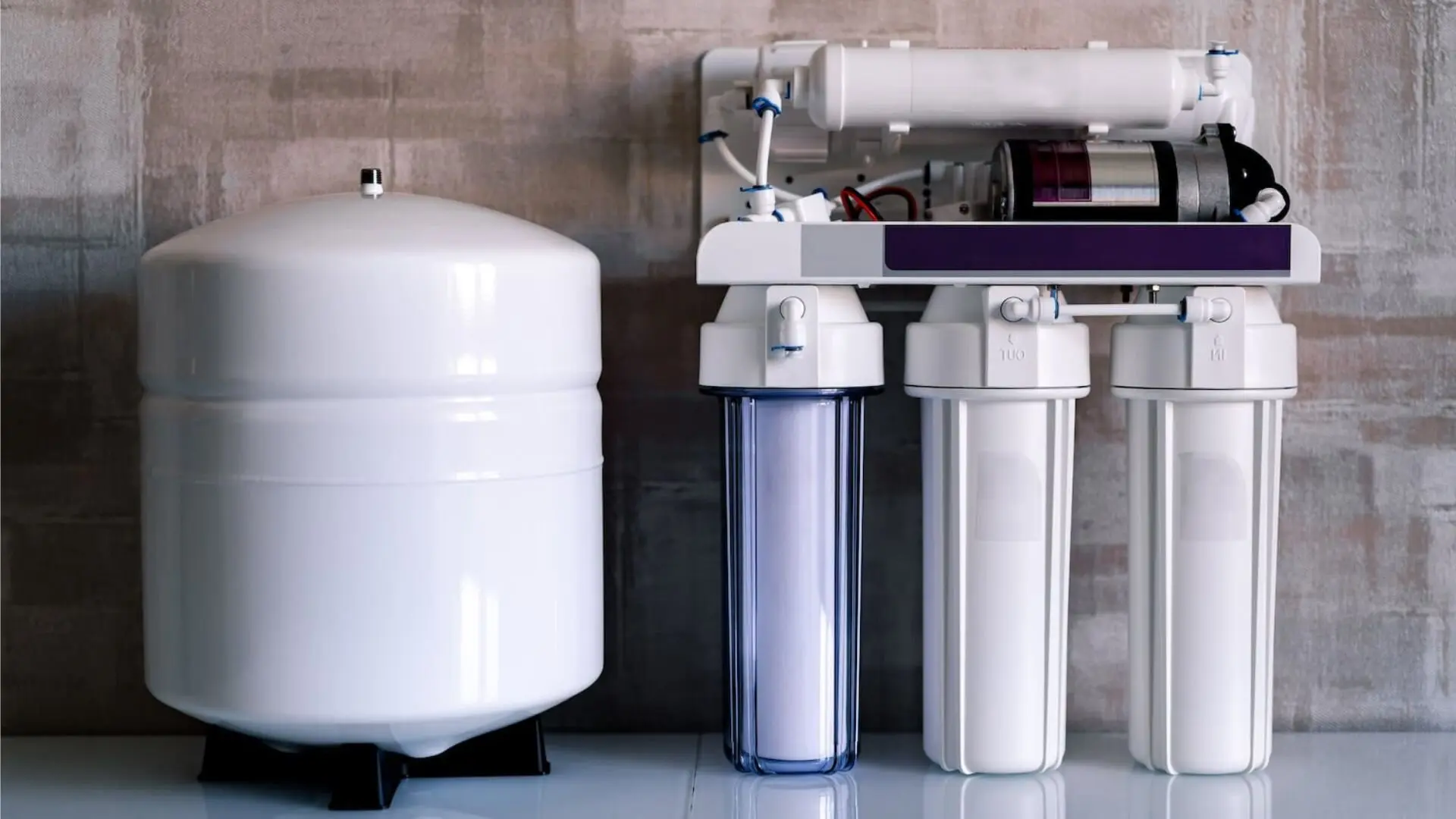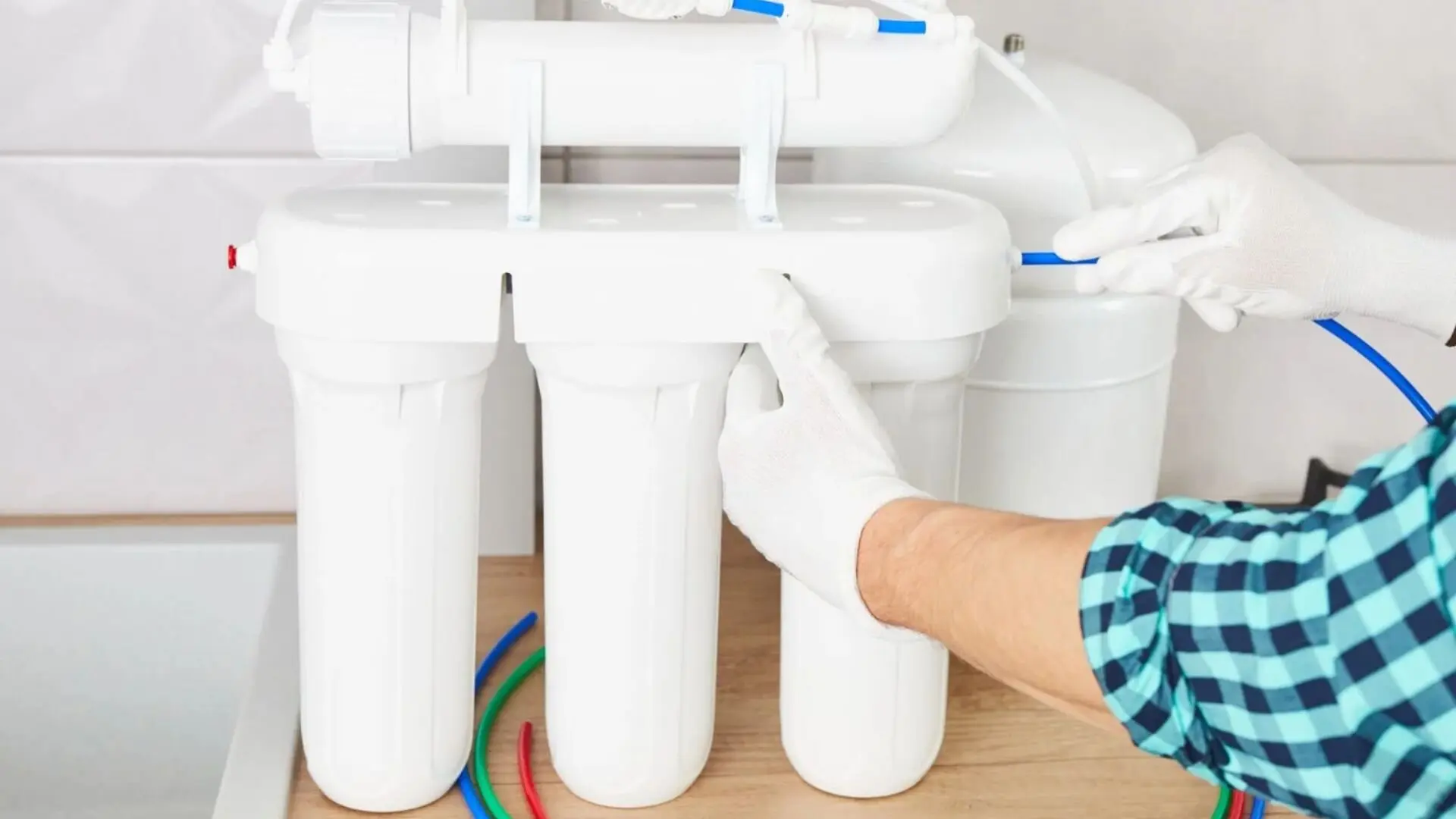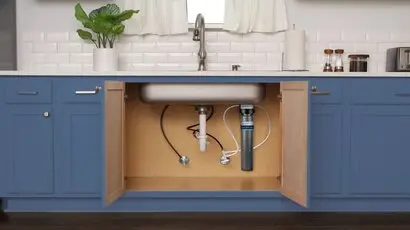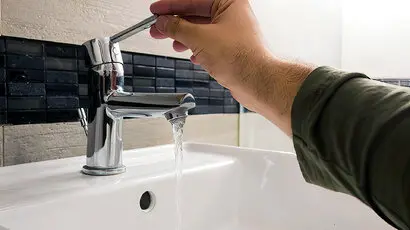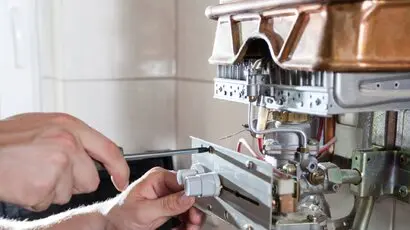It’s crucial to have clean, contaminant-free water for your family’s health and peace of mind. Point-of-use filters help with a single tap, but a whole-house filtration system cleans every drop entering your home. If you want to get rid of impurities like chemicals, heavy metals, and microorganisms, and have cleaner water from every faucet, a whole-house filtration system is a smart choice.
In this blog post, we’re going to explore whole-house water filters, including how they work, the various types, and what they filter out. We’ll discuss their benefits over point-of-use systems, key features to consider, and selecting the right option for your needs and budget. Plus, we’ll tackle some common questions about whole-house filtration.
Let’s jump right in and discover how you can enjoy pure, filtered water throughout your home!
What is a Whole-House Water Filtration System?
A whole-house water filtration system filters all the water entering your home before it reaches any of your faucets or appliances. It is installed along the main water line where it first enters your house.
Water passing through the whole-house filter removes many contaminants from your water supply. These include sediment, chlorine, heavy metals, microorganisms, and other impurities that affect water quality, taste, odour, and colour.
![]()
Unlike point-of-use filters, which only treat water at a single tap or fixture, whole-house systems simultaneously treat your entire water supply. This provides cleaner, filtered water throughout your home for drinking, cooking, bathing, laundry, and more.
Whole-house filters are typically more robust and have a higher flow rate than under-sink or countertop filters. They also last longer since all the water in the home is filtered through one central system. Overall, whole-house filtration is one of the most thorough and convenient ways to improve your home’s water quality.
Benefits of Whole House Water Filters
With a whole-house water filter, you get cleaner, better-tasting water everywhere in your home. Unlike point-of-use filters that deal with just one tap, whole-house systems filter all the water flowing into your house.
This means you get contaminant-free water for drinking, cooking, bathing, laundry, and more. Whole-house filters remove a range of impurities, like sediment, chlorine, heavy metals, and microorganisms.
Whole-house systems can eliminate bad taste and odours, preventing the need for bottled water. The water will feel cleaner without irritating chemicals. Whole-house systems also reduce strain on appliances and pipes by removing sediment and minerals that can cause build-up and clogging.
Types of Whole-House Water Filters
There are several types of filters for whole-house water filtration systems, and choosing the right one depends on your specific water quality concerns.
![]()
Sediment Filters
Sediment filters are designed to trap particulate contaminants through mechanical straining. They use a physical media barrier like polypropylene, pleated cotton or cellulose, or stainless steel mesh.
As water passes through, particles are captured on the surface of the filter media. Sediment filters effectively remove dirt, silt, sand, rust, and other suspended solids that affect water clarity and aesthetics. They help prevent build-up and clogging in pipes, faucets, and appliances. Sediment pre-filters are often installed first in a whole-house system to protect other filters from premature fouling.
Carbon Block Filters
Carbon filters use activated carbon to adsorb contaminants through chemical absorption. Activated carbon filters contain powdered carbon compressed into a solid form. As water passes through the porous block, impurities are trapped in the carbon media.
Carbon blocks excel at removing chlorine, pesticides, herbicides, industrial solvents, VOCs, radon, chloramine, gasoline, and heavy metals like lead and mercury. The dense carbon block design provides extensive dwell time and surface area for chemical absorption. Carbon blocks offer high filtration capacity in a compact housing size.
Reverse Osmosis Systems
A reverse osmosis system forces water through a semi-permeable membrane that filters out dissolved contaminants. The membrane has microscopic pores that block particles, ions, and larger molecules while allowing water to pass through.
RO removes total dissolved solids like salts, minerals, metals, nitrates, sulphates, and pharmaceuticals. A reverse osmosis system provides the most thorough whole-house filtration, removing up to 99% of impurities. However, the system wastes 2-3 gallons for every purified gallon of drinking water and requires a separate storage tank and pump.
UV Light Systems
UV light systems disinfect water by emitting ultraviolet radiation. A UV lamp emits light at wavelengths that inactivate microorganisms such as bacteria, viruses, protozoa, moulds, and fungi.
As water passes the UV lamp, the DNA of the microbes is altered so they cannot reproduce. UV disinfection is highly effective against pathogens without using heat or chemicals. UV units are often installed after reverse osmosis systems to neutralise any remaining microbes.
Water Softeners
Water softeners do not technically filter water but remove hardness minerals like calcium and magnesium. This addresses scaling from hard water deposits.
Softened water prevents build-up on plumbing fixtures, extends equipment life, and allows soaps to lather better. Water softeners use an ion exchange process. Hardness minerals are replaced with sodium ions, producing softened water.
Clean, Contaminant-Free Water For Your Entire Home
Installing a home water filtration system is one of the best ways to improve your home’s water quality and provide cleaner, contaminant-free water from every tap. Whole-house filters remove many impurities affecting health, plumbing, and water’s taste, smell, and appearance. They provide benefits over point-of-use filters by treating your entire water supply simultaneously.
Several types of whole-house filtration systems address different water quality issues. Sediment filters remove particles and rust, carbon blocks absorb chemicals and VOCs, reverse osmosis eliminates dissolved solids, UV systems disinfect microorganisms, and water softeners reduce hard water minerals. The right system depends on your specific needs.
Thinking about a whole-house water filter system? The experts at WP Plumbing are here to assist. We provide installations and can recommend the best filtration type for you. Our licensed plumbers manage the installation process, including any needed repairs or upgrades. Contact WP Plumbing today to discover how our high-quality filtration can enhance your home’s water.
Frequently Asked Questions
Do I need a whole-house water filter?
While point-of-use filters can improve water at a single tap, a whole-house system filters all the water entering your home. This provides cleaner, better-tasting water for drinking, cooking, bathing, etc. Whole-house filters are ideal if you have contaminated well water or want to improve your municipal water quality.
How often do I need to replace the filter on a whole-house system?
Most whole-house water filters need to be replaced every 3-6 months, depending on your water usage and the type of filter. Cartridge filters may need replacing more often than tank filters. Check with the manufacturer’s recommendations for the specific replacement frequency for your system. Setting a reminder can help you stay on top of routine filter changes.

